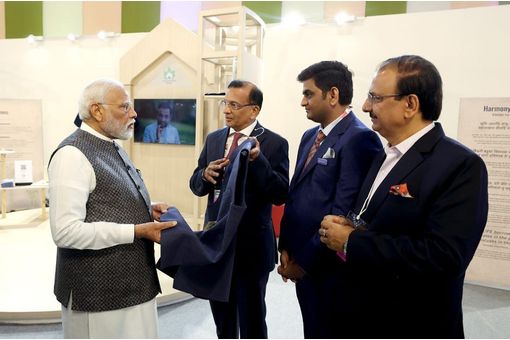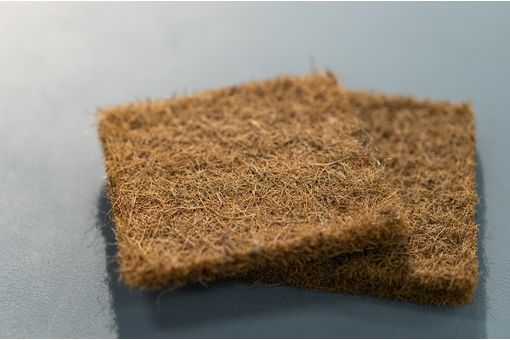Interviews
TPP offers opportunities to Canadian retailers
22 Jun '16
3 min read
A report by multinational law firm Dentons says the Trans-Pacific Partnership (TPP) offers Canadian retailers exciting new opportunities.
The 12-nation TPP offers the Canadian textile industry expanded and preferential access to many strategic global markets. To the extent that Canadian textile and apparel retailers and producers are able to organize their operations in such a way as to work within the TPP's new textile and apparel rules of origin, they will have the opportunity to take advantage of significant reductions in the rates of duty with which they contend when importing products into Canada, the report says.
The agreement is Canada's first free trade agreement that contains a chapter specifically dedicated to textiles and apparel. According to Global Affairs Canada, the TPP's textile and apparel rules of origin will provide Canadian producers more flexibility in sourcing options, opening up Canada's access to trade with the other member states.
The TPP reduces and eliminates tariffs associated with trading textiles and apparel between member states. Taking advantage of the TPP's preferential tariff treatment by trading with other member states could result in significant cost savings for retailers and producers in Canada. The specific rates of preferential tariff treatment, including the base rates of duty applicable to each item and the timeline for tariff elimination, can be found in each member state's Tariff Elimination Schedule.
Generally, for an end product to qualify for preferential tariff treatment, it must originate within the TPP region in accordance with the Agreement's rules of origin. As a general rule, an end product must be comprised of yarns and fabrics from the TPP region to qualify as originating within the TPP region. This requirement is often referred to as the “yarn forward” rule.
However, the TPP also provides a degree of flexibility with respect to the yarn forward rule. Article 2 of Annex 4-A outlines that an end product qualifies as originating if it is produced entirely in the territory of one or more TPP parties using non-originating materials that have undergone the production process requirements or changes in tariff classifications specified in the Annex, and the end product otherwise satisfies the rule of origin requirements set out in Chapters 3 and 4 of the TPP.
Additionally, the Short Supply List, found in the TPP provides its members with an exemption to the yarn forward rule in situations where producers
The 12-nation TPP offers the Canadian textile industry expanded and preferential access to many strategic global markets. To the extent that Canadian textile and apparel retailers and producers are able to organize their operations in such a way as to work within the TPP's new textile and apparel rules of origin, they will have the opportunity to take advantage of significant reductions in the rates of duty with which they contend when importing products into Canada, the report says.
The agreement is Canada's first free trade agreement that contains a chapter specifically dedicated to textiles and apparel. According to Global Affairs Canada, the TPP's textile and apparel rules of origin will provide Canadian producers more flexibility in sourcing options, opening up Canada's access to trade with the other member states.
The TPP reduces and eliminates tariffs associated with trading textiles and apparel between member states. Taking advantage of the TPP's preferential tariff treatment by trading with other member states could result in significant cost savings for retailers and producers in Canada. The specific rates of preferential tariff treatment, including the base rates of duty applicable to each item and the timeline for tariff elimination, can be found in each member state's Tariff Elimination Schedule.
Generally, for an end product to qualify for preferential tariff treatment, it must originate within the TPP region in accordance with the Agreement's rules of origin. As a general rule, an end product must be comprised of yarns and fabrics from the TPP region to qualify as originating within the TPP region. This requirement is often referred to as the “yarn forward” rule.
However, the TPP also provides a degree of flexibility with respect to the yarn forward rule. Article 2 of Annex 4-A outlines that an end product qualifies as originating if it is produced entirely in the territory of one or more TPP parties using non-originating materials that have undergone the production process requirements or changes in tariff classifications specified in the Annex, and the end product otherwise satisfies the rule of origin requirements set out in Chapters 3 and 4 of the TPP.
Additionally, the Short Supply List, found in the TPP provides its members with an exemption to the yarn forward rule in situations where producers
Popular News
Leave your Comments
Editor’s Pick
































-Ltd..jpg?tr=w-120,h-60,c-at_max,cm-pad_resize,bg-ffffff)





.jpg?tr=w-120,h-60,c-at_max,cm-pad_resize,bg-ffffff)
.jpg?tr=w-120,h-60,c-at_max,cm-pad_resize,bg-ffffff)






